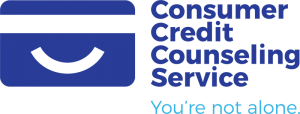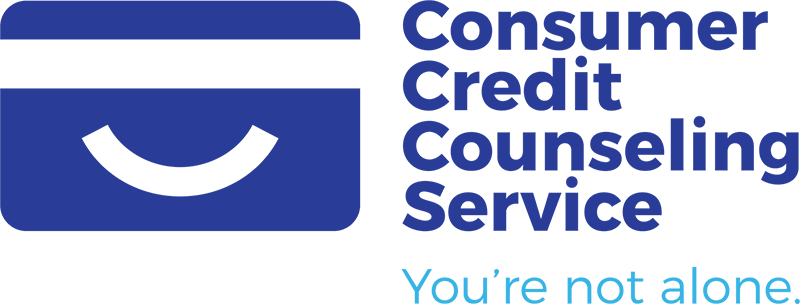Consumer Credit Counseling Service News Articles
Home » News Articles »
Holli Lewandowski; Certified Credit Counselor and Credit Educator
Recently I spoke with a group of high school students who had been discussing personal finances in a life skills class. They had many great questions and so it had me thinking…what would I have wanted to know as a young teen that I now know regarding building smart finances??
Save/Spend/Share
From the youngest of ages, children can be “primed” to see their finances as having power. The power to share and make a difference. The power of compound interest. The power of saving up for that special something.
Smart money management is a muscle. Keep using the skill and it will get stronger. Teach your children (or start again with yourself…it’s never too late!) to divide your money into the above categories or something similar. Save: that’s they easy one…in a piggy bank or a real bank account. Spend: this amount is your discretionary spending. Spend eventually by saving it up for something or treat yourself now. Share: this can mean what you want. Maybe to you it means to donate to a charitable cause or add it to the collection basket at church. As long as it is for the betterment of others, anything counts!
The way you divide it is your choice. Maybe try percentages. (50% Save 30% Spend 20% Share). Maybe try evenly dividing. The goal is to develop the thinking that planning for the money is just as important as earning or receiving it.
Bank Accounts
There is nothing better than watching your savings grow…even as a young person! Once children are introduced and practicing Save/Spend/Share, the next step should be opening an official savings account in their name. Teach them the process of depositing into the bank, earning interest, etc. Once earnings are more regular like with a first job, the next step would be to open a checking account with an attached debit card. Teach your child how debit cards withdraw directly from their checking account. Teach money management techniques for reconciling banking activity. And remember…they are still using Save/Spend/Share.
Budgets (and Spending Plans)
There is NO BETTER TIME to get in the habit of living within a budget. Imagine if you had set up a budget in your teens…what would your savings look like right now?? Set up a simple budget with your teen or young adult. Even a basic budget works well: determine earnings, subtract any expenses, and categorize and assign dollar limits to the expenses in a way that works for you. Monitor your budget and adjust amounts as circumstances change.
Some people feel very constricted by a budget. Try a spending plan. It is NOT the same thing…although interchanged often. A spending plan is simply taking your earnings, subtracting all of your “must pays” for the month and the rest is for you to spend on all variable expenses from the same pot of money. ALWAYS pay yourself first whether using a budget or a spending plan! This is your SAVINGS amount. And hopefully, your children (or you) are still flexing the Save/Spend/Share muscle!
First “Credit”
It’s not really credit quite yet. The first simple step to start on the road of excellent credit is to consider family members with excellent credit and ask to be an authorized user on their account. You don’t need an actual card because you’re never going to actually use it. You are “assigned” to the account in that you could use it, but really what you are accomplishing is that you are getting the “good points” of that person’s excellent credit applied to your credit score. It is essential to pick a reliable person for this option. And remember you aren’t actually using the card and so you are not acquiring any debt. This is KEY.
Secured Card
After 18, you are able to apply for your own credit. There is a SMART way to make this work for you. Consider a secured card to increase your credit score. A secured card can be obtained from your financial institution. You pay a deposit on the card (i.e. $200) to open the card and that money is the “security” for your usage of the card. Use it sparingly with a minimal purchase every once and awhile and KNOW that you will receive a billing statement for it and you MUST pay it just like a regular credit card. The $200 deposit is only there as a BACK UP if you don’t pay…but would be a negative mark on your credit score if it happened. A secured card offers a safe way to show that you will use credit responsibly. And again, you won’t gain debt since if you don’t pay, the financial institute will use the deposited money. (But mark your credit negatively, which is the opposite of the goal here.)
USE/PAY Credit
Once you have started building your excellent credit with the above practices, open a non-universal card (i.e. a Kohl’s card or small, specific store card). THIS IS ESSENTIAL: Use the card VERY sparingly. And the day you are in the store and making your small purchase… walk back to the customer service counter and pay the account off IMMEDIATELY. This way you are gaining the points of using credit wisely as in using/paying off the balance. You do not gain debt since each time you are actually paying it immediately. I recommend a small purchase every other month or so at the MAXIMUM.
Credit Builder Loan
Another way to continue working on that excellent credit score is to start a credit builder loan. Your financial institution would help you set up the loan (and may call it something different). The basics of the credit builder loan is you set up an amount of the “loan” and make payments to that loan. But in reality, you are making payments to yourself essentially because you aren’t actually borrowing any money. You are gaining the good credit points of making monthly, on time payments on the loan and that is the essential piece. At the end of the “loan”, you have that amount saved up!! Using the credit builder loan shows that you can be responsible with another form of credit.
Cars and College
Usually at some point in your younger life, you will be faced with a large expense like college loans or car loans. KNOW THIS: there are smart ways to manage both types of loans (or none at all). The best personal finance advice I can give on either type of loan is NOT to get one!! There are many ways to keep your educational costs down and to focus on having no student loan debt or very little. Scholarships, grants, work study, educational savings accounts are just a few. Do the work to find the money now and you won’t have to pay later. Period.
Car loans are sometimes essential. But the ideal situation is to NEVER have a car loan in the first place. Think about it: cars depreciate immediately in value. When you purchase a vehicle with a loan, you are paying more with interest while the very object you are trying to pay off is losing value. It’s not necessarily an investment unless this would be your one and only lifetime vehicle. (Sorry they don’t last.) Remember Save/Spend/Save?? Somewhere in your early teens you start thinking of a car. This is the IDEAL time to start making car payments to yourself a.k.a saving up for a car. Then at the time when you need a vehicle for your first job or ride to school, etc. purchase something that you can afford with the payments you have been making to yourself. (If you had a loan, you would have HAD to be making these payments anyway.) Maybe it’s Uncle Joe’s sedan for $1000 but the point is to pay for it in CASH. THEN…here’s the remarkable part…continue to make those payments to yourself (maybe increase them a little). By the time Uncle Joe’s sedan dies, you will have CASH for the next vehicle. If you were able to increase the payments to yourself, then perhaps choose a little newer vehicle. And so on. You would NEVER be tied down to a car payment except in your budget planning to yourself. It’s great to have control.
I am not a proponent of new cars. I AM a proponent of nice, barely used cars! Think: certified used, or dealer “loaner” cars, or leased cars that were turned back in to the dealer. And here’s why: As soon as you drive off the lot, BOOM…the value in that vehicle just went down. For nothing. Let someone else pay that initial depreciation. Many people also forget that once you drive that car off the lot and the value decreases, you probably don’t have enough insurance to cover it if something happened immediately. There is an insurance product called GAP insurance which would cover this; however, this is an additional expense to you. Think about it.
Maybe the next big financial step for you is college. (This deserves its own article.) But for brevity’s sake, if your next financial step is paying for college: PLEASE consider how you will pay for it as part of your preparation for attending. Yes, I mean start early…high school sophomore year or earlier. The more activities, the more volunteering, the better grades you get…ALL add up when it’s time to apply for scholarships. Do your searches early. There IS FREE money out there but you have to do the work. Consider alternate ways to pay for college. Attend a 2-year program first and then transfer. Look for grants that may apply to you. (Grants = free money.) Consider the overall amount that you will need to pay when you begin comparing colleges. Consider travel expenses, housing, tuition costs, additional fees. Take time to understand what types of loans you are applying for and how the repayment works. You WILL need to pay them back. Many young people ruin their credit by not staying current on their loans. There are HUGE consequences for defaulting on your loans. Don’t do it. As a general rule, the amount of money that you are considering borrowing should be less than what you would typically make in your first year of earnings once you graduate in your program. You will probably not make $80,000 in your first year of teaching, for example. So don’t borrow that! Keep these tips in mind when beginning your college planning.
CREDIT SCORES
Repayment of ANY loan (but especially for new credit builders) is ESSENTIAL. Be on time. Never miss a payment. If you have trouble paying, communicate and get help. You WILL need a credit score: renting an apartment, utilities, eventual mortgages. Keeping your credit report “clean” and your score high is your gateway to options. The better your credit score and history, the better interest rates you will qualify for and more options will open up to you. And this is for your whole life. Build a good foundation and you will have a great credit experience. And it all starts with SAVE/SPEND/SHARE.


